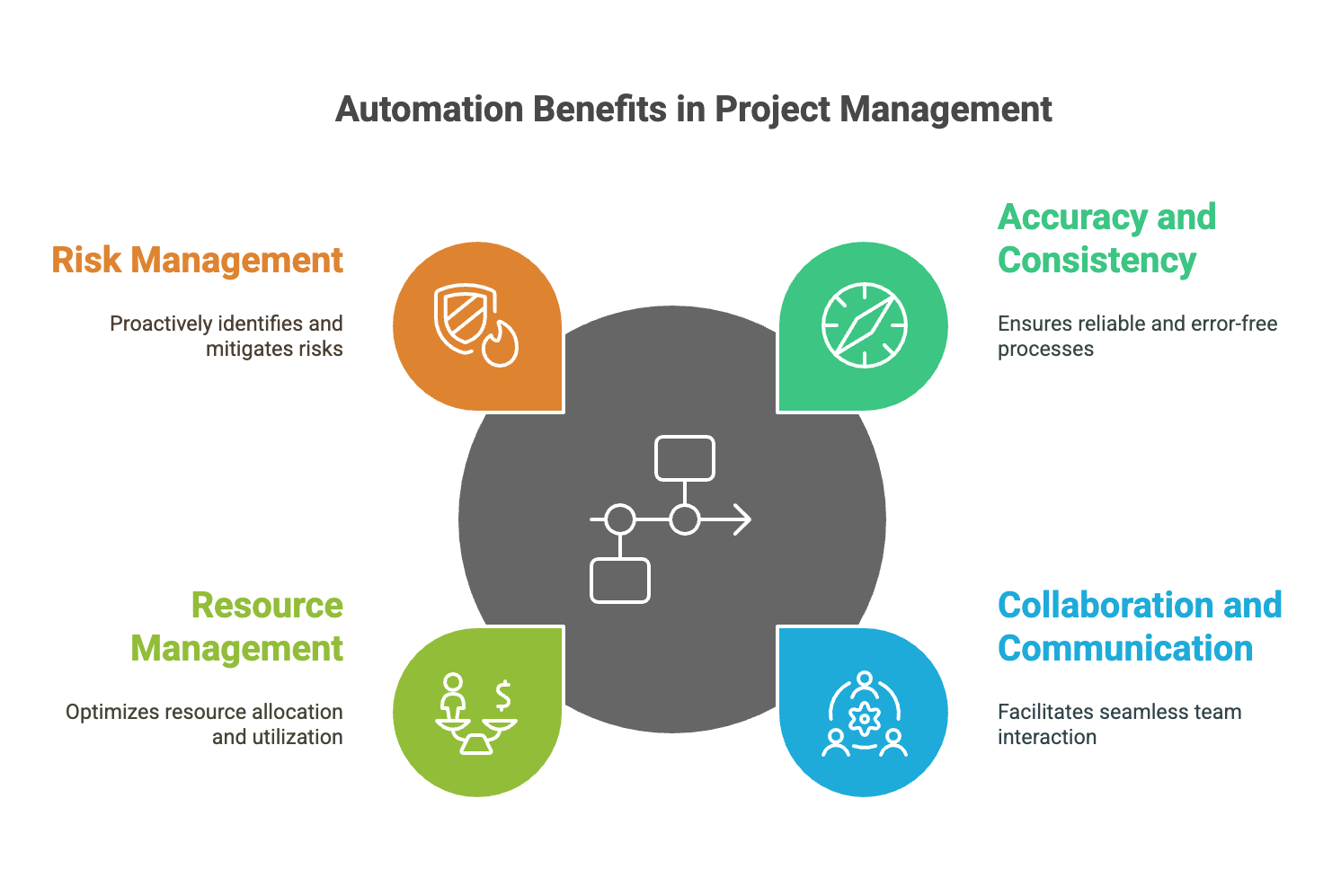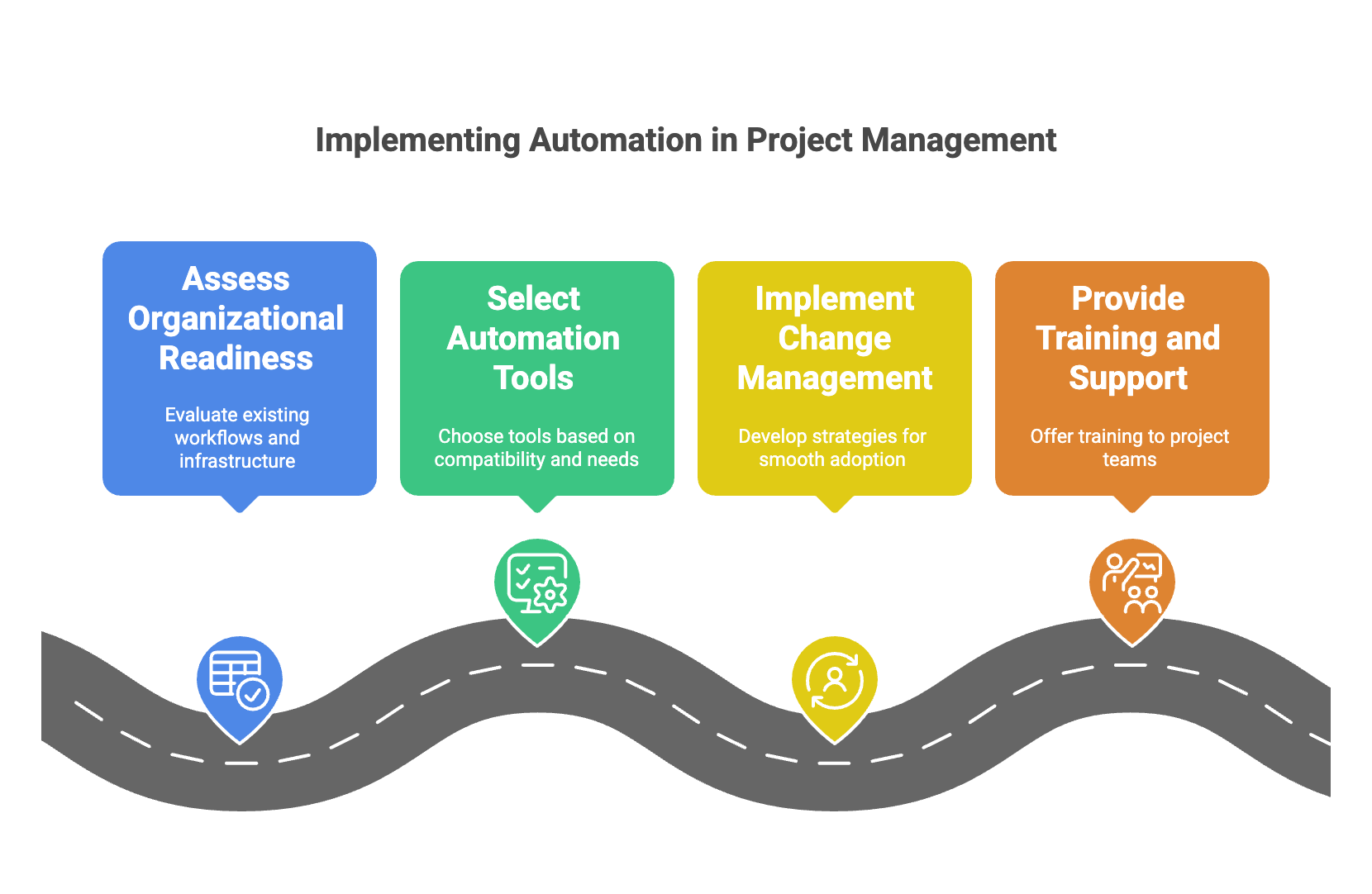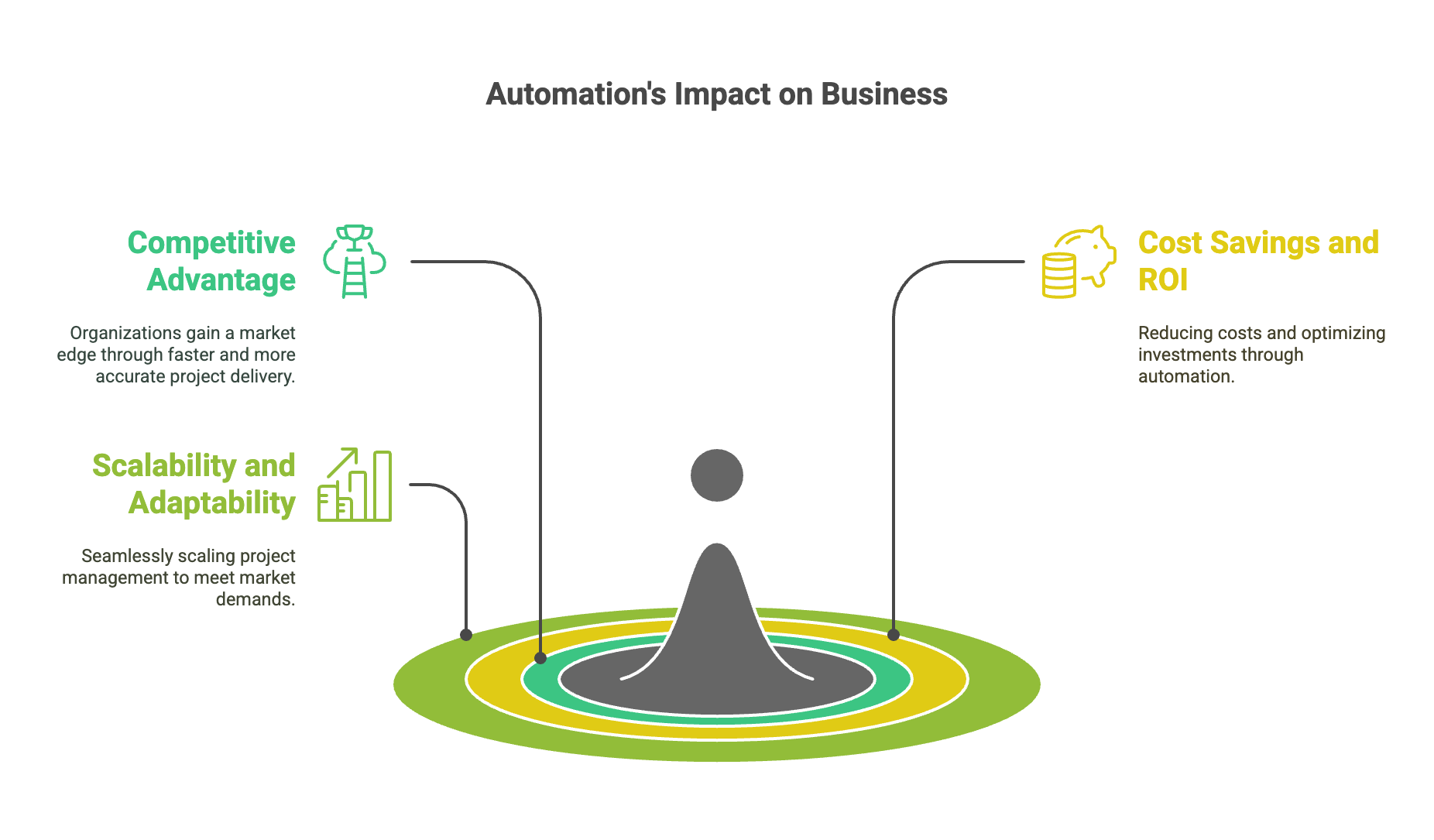Project management has become increasingly complex, with numerous variables to consider and countless tasks to oversee. To overcome these challenges, organizations are turning to automation to streamline their project management processes and drive greater efficiency. This article delves into the realm of automation in project management, exploring its benefits, implementation strategies, and potential impact on business success.
I. The Rise of Automation in Project Management
Meeting the Demands of Complexity
As projects become more intricate, traditional manual approaches to project management are proving insufficient. Automation offers a comprehensive solution by automating repetitive and time-consuming tasks, enabling project managers to focus on strategic decision-making and critical thinking.
Enhanced Efficiency and Productivity
Automation eliminates human error, accelerates processes, and optimizes resource allocation. By automating routine activities like scheduling, documentation, and reporting, project teams can maximize their productivity, achieve faster project delivery, and free up valuable time for value-added tasks.
II. Benefits of Automation in Project Management
Improved Accuracy and Consistency
Automation ensures consistent application of project management practices, reducing the likelihood of errors and discrepancies. With automated data entry and analysis, decision-making becomes more reliable, leading to better project outcomes.
Enhanced Collaboration and Communication
Automation fosters seamless collaboration among team members, stakeholders, and clients. Centralized project management platforms automate notifications, task assignments, and document sharing, facilitating real-time communication and enabling teams to work together efficiently regardless of their physical location.
Effective Resource Management
Automation tools provide robust resource management capabilities, enabling project managers to allocate resources effectively and track their utilization. By optimizing resource allocation, organizations can achieve higher productivity, reduce bottlenecks, and ensure projects stay on track.
Proactive Risk Management
Automation empowers project managers to identify, assess, and mitigate risks proactively. AI-powered analytics can analyze vast amounts of data, detecting potential risks and offering insights to mitigate them. This proactive approach minimizes the impact of risks on project timelines and budgets.

III. Implementing Automation in Project Management
Assessing Organizational Readiness
Before embarking on automation initiatives, organizations must evaluate their readiness for implementation. This involves assessing existing workflows, processes, infrastructure, and skill sets to identify potential gaps and align automation with organizational goals.
Selecting the Right Automation Tools
Choosing the appropriate automation tools is crucial for successful implementation. Organizations should evaluate tools based on their compatibility with existing systems, scalability, user-friendliness, and the specific needs of their projects. Collaboration platforms, project management software, and AI-enabled tools are some options to consider.
Change Management and Training
Introducing automation requires effective change management strategies to ensure smooth adoption. It is essential to provide comprehensive training and support to project teams, enabling them to understand and embrace the new automated processes. This helps overcome resistance and maximizes the benefits of automation.

IV. Potential Impact of Automation on Business Success
Competitive Advantage
Organizations that effectively leverage automation in project management gain a competitive edge by delivering projects faster, more accurately, and within budget. Automation enhances customer satisfaction and enables organizations to take on more projects, expand their market share, and outperform their competitors.
Cost Savings and ROI
By automating repetitive tasks and optimizing resource allocation, organizations can significantly reduce costs associated with manual labor, errors, and rework. Moreover, automation enables data-driven decision-making, leading to better investment choices and increased return on investment (ROI).
Scalability and Adaptability
Automation allows organizations to scale their project management capabilities effectively. As project complexity and volume increase, automation enables seamless scalability without compromising quality, ensuring organizations can adapt to evolving market demands.

Conclusion
Automation has become a game-changer in project management, revolutionizing the way organizations plan, execute, and deliver projects. By embracing automation, businesses can achieve heightened efficiency, accuracy, collaboration, and risk management. However, successful implementation requires careful planning, organizational readiness, and effective change management strategies. As automation continues to evolve, organizations that capitalize on its potential will gain a significant advantage in today's competitive landscape, propelling them towards greater success in their project management endeavors.